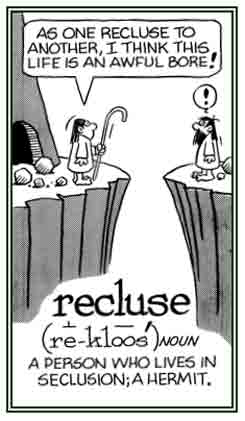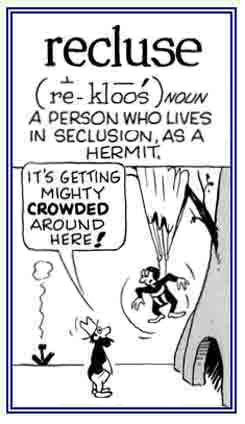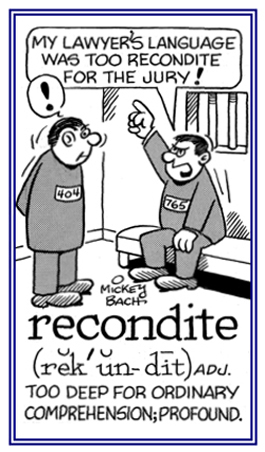re-, red-
(Latin: back, backward, again; used as a prefix)
2. A cooperative interchange of favors or privileges, especially the exchange of rights or privileges of trade between nations: The two countries did business and had transactions with goods and services with each other and this common reciprocity equally benefited them and existed for many years.
3. An arrangement in personal licensure whereby one jurisdiction accepts another jurisdiction's prior issuance: Both countries agreed on a reciprocity, allowing an individual to practice medicine and not being required to demonstrate again through examination or otherwise, that he or she has met minimum levels of competence required for a license.
4. An arrangement between governments whereby their nationals are entitled to certain stated medical care or other benefits on an agreed basis: Within the European Community there exists a reciprocity whereby the citizens are allowed to cross the boarders between the different countries without having to prove their identity with using their passports, which is a great advantage for everybody!
5. In anthropology, a system in which the exchange of goods is conducted within the groups of a society or community according to a prescribed ritual: Reciprocity is a non-market trading between people in countries or even in the home when gifts are given to each other for Christmas or as birthday presents.

Go to this Word A Day Revisited Index
so you can see more of Mickey Bach's cartoons.
Reciprocity in the news: "Talking tough on trade, Paris seeks 'reciprocity' "
The French agriculture minister Thursday (May 31, 2007) warned that France could use its veto powers to block a global trade deal that did not protect European agricultural interests.
The French minister, Christine Lagarde, said, "The need for reciprocity is imperative. We will not see a breakthrough in global trade talks until we see exact figures from the United States that show reciprocity and balance."
2. Material read aloud or recited from memory in public; especially, poetry.
3. The act of listing or reporting something.
4. The oral response by a student to questions about previously taught material.
2. To give a detailed account of an occurrence or an event.
2. To make land, which was covered by flood waters, fit again for cultivation: An environmental group was helping farmers reclaim acres of fields so they could start growing their crops again.
3. To recover materials for reuse by freeing them from impurities: Plastics, rubber, and some other elements are being reclaimed by rendering them acceptable for the production of usable items again.
Some recluses live in solitude in the forests or mountains completely away from other people.


Go to this Word A Day Revisited Index
so you can see more of Mickey Bach's cartoons.
2. Appreciation of the value of an achievement: Jim's pioneering work never got the recognition it deserved.
3. Acknowledgment of the existence or validity of something: Jack and Jill need recognition from the committee in order to proceed with the celebration.
4. Permission given by someone chairing a meeting to another person who has asked to speak: The head of the English department gave recognition to Mr. Smith who wanted to offer his opinion on the subject of grading.
5. The formal acceptance by one country of the independent and legal status of another country: Guatemala’s recognition of Belize ended the territorial controversy in 1991.
6. Something given or awarded as a token of acknowledgment or gratitude: Lynn was presented with a trophy as recognition of being the best improved violinist in the school orchestra.
7. The sensing and conversion of data into a machine-readable form by a computer: It is possible that handwriting can be transformed into a PC or laptop by certain means of recognition or coding.
8. In biology, the ability of molecules with complementary shapes to attach to one another: Enzyme-substrate and antibody-antigen interactions are two forms of recognition in the field of science.
Judy's friend recommends that she read a certain book that will improve her understanding of the kind of psychotherapy which would benefit her.
2. To represent or to urge as advisable or expedient: Sam felt the need to recommend caution when his friend was about to drive home during the rain storm.
3. To advise, as an alternative; to suggest a choice, course of action, etc. as appropriate, beneficial, etc.:
At the restaurant, Charles recommended the blue-plate special because it included an especially delicious steak.
Ted's doctor recommended special exercises for him to do to help his aching back.
4. Etymology: from Latin commendare, "to entrust to, to praise", from re- + mandare "to give into someone's hand, to commit to one's charge".The students complained that the new textbook about the origins of words had too many recondite explanations for them to comprehend.
2. Etymology: from Latin reconditus, "hidden, secrete" from recondere, "to put away", from re-, "back" + condere, "to hide" + com-, "together" + dare, "to give."
Go to this Word A Day Revisited Index
so you can see more of Mickey Bach's cartoons.
2. To come to one's attention or memory again and again: The sad meeting with Megan kept recurring in Jim's mind for a long time.
Eugenia had a recurrence of cancer cells in the same place as before.


